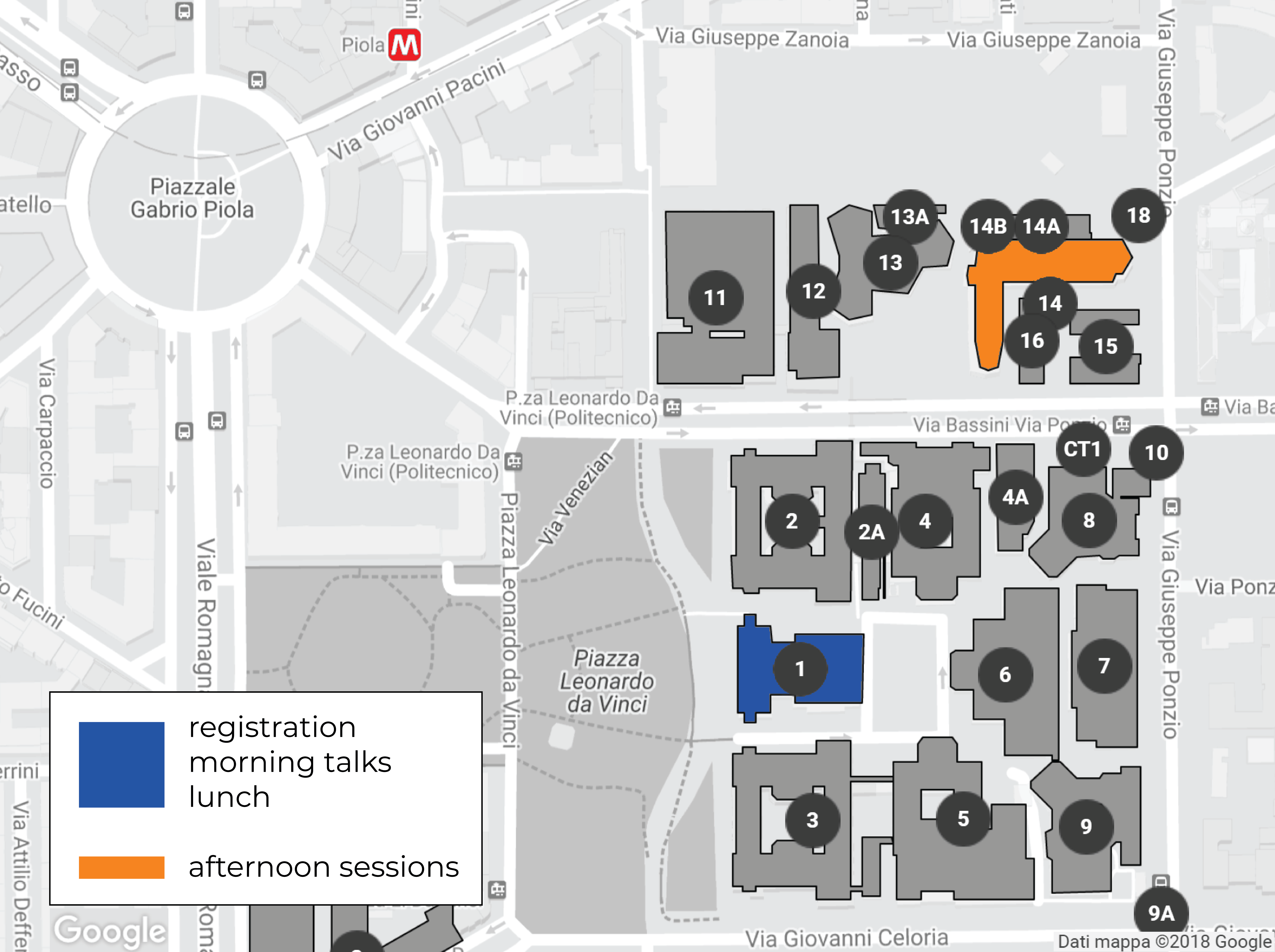Earth Science
Earth Science problems often provide data distributed over a spatial domain, that can be analyzed in the context of spatial statistics. In recent years, spatial statistics has assumed a key role in modeling and predicting complex geophysical variables, possibly distributed over large or highly textured regions. In this framework, Object Oriented Spatial Statistics (O2S2) is a system of ideas and methods that allows to analyze high dimensional and complex spatial data, interpreted as objects in appropriate mathematical spaces. We discuss the extension of key geostatistical concepts and methods in the context of O2S2 and present recent extensions to the analysis of object data distributed over complex regions.
Morning Talk: Alessandra Menafoglio, PhD
Panel Session: Vladislav Ivov Ivanov, PhD; Anna Scotti, PhD
Smart Cities
Nowadays, thanks to data analysis and statistics, it is possible to have new insights of a city, figuring out other urban dimensions that human sight is not able to perceive, in order to have a more complete and compelling description of the typical dynamics of a city. We will introduce some statistical tools such as functional biclustering and sentiment analysis, able to capture citizens mobiles and thoughts. This new quantitative perspective to the city can suggest new citizen and data driven policy for a better urban welfare.
Morning Talk: Jacopo Di Iorio, PhD Student
Panel Session: Prof. Valeria Fedeli; Prof. Michela Arnaboldi
Neuroimaging
Statistics in neuroimaging is a challenging field due to the complexity of the anatomy and function of the brain. We will focus on brain microstructure mapping through diffusion magnetic resonance imaging (dMRI) and how to turn MR images into maps of neurons. This implies designing appropriate estimation schemes that account for the unique properties of noise in MRI, and statistical methods that exploit the local diffusion information to trace neurons throughout the brain. Functional data analysis effectively provides such statistical tools, allowing also to produce innovative interpretation keys for the clinicians: we will show examples of tumour lesion detection along the cortico-spinal tract for helping pre-surgical planning of tumour removal surgery.
Morning Talk: Aymeric Stamm, PhD
Panel Session: Dr. Alberto Bizzi; Aymeric Stamm, PhD
